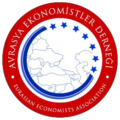
International Congress on Eurasian Economies
19-20 September 2023 – İzmir - TURKEY
Paper properties
Paper ID : 2741
Status : Paper submitted to journal
Language : Turkish
Topic : Growth and Development
Presenter: Prof. Dr. Ömer Selçuk Emsen
Session : 4B Kalkınma
The Implications of Military Expenditures on Development in OECD Countries
OECD Ülkelerinde Askeri Harcamaların Gelişmişliğe Yansımaları
- Prof. Dr. Cevat Gerni (Istanbul Beykent University, Türkiye)
- Mrs. Nesibe Demir Bingöl (Atatürk University, Türkiye)
- Mr. Murat Bingöl (Atatürk University, Türkiye)
- Prof. Dr. Ömer Selçuk Emsen (Atatürk University, Türkiye)
Abstract
This study examines the implications of military expenditures on economic development in OECD countries. It is being put forward that the military expenditures have negative effects on economic development, most probably, due to the diversion of the country’s resources to the unproductive sectors and its adverse impact on civilian production and welfare level. However, it is also recognized that the military expenditures, when coupled with openness to innovation and its evolution into civilian sectors, can contribute to sustainable development. This study investigates the functioning of the transformation mechanism of 1995-2020 period military expenditures into research and development (R&D), (R&D) into patents and patents into income, for 32 OECD member countries for which data are available, through Phillips and Sul's (2007, 2009) club convergence analysis. The findings of the club convergence analysis reveal that the countries in the first group with a high military expenditure share within GDP, such as Australia, Canada, South Korea, and the United States, engage in military expenditures within the context of development and innovation hypotheses. On the other hand, it determines that the countries also in the first group, such as Chile, Colombia, Greece, Portugal, and Türkiye, make their military expenditures with the aim of coping with external threats and deterrence, and this situation, by leading to an inefficiency of the resource utilization, result in these countries’ staying within the undeveloped group. Based on the findings of the study, it is concluded that, in countries surpassing a certain level of development, military expenditures can contribute to the development of the strategic sectors by stimulating civil sectors and foster the sustainable development of the countries through the direction of this to the high-technology fields.
JEL codes: H56, O11, C23




